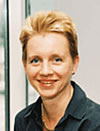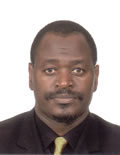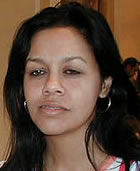The CGIAR was created in 1971. Today more than 8,500 CGIAR scientists and staff are working in over 100 countries, addressing every critical component of the agricultural sector including agroforestry, biodiversity, food, forage and tree crops, pro-environment farming techniques, fisheries, forestry, livestock, food policies, and agricultural research services. Thirteen of the Centres are headquartered in developing countries.
Author: claire
Refurbished computers for Africa
Gladys Muhunyo is Africa Programme Manager at Computer Aid International and oversees an expanding programme of work in Eritrea, Ethiopia, Sudan, Somalia, Tanzania, Uganda, and Kenya. “Having previously worked for organisations that received PCs from Computer Aid, I knew that they were of the highest quality available”, she comments, “so I was delighted to be given the opportunity to contribute to the effort as […]
Learning and knowledge sharing for developing countries
Dr Monika Weber-Fahr is a manager at the World Bank Institute (WBI), heading up the Institute’s efforts in the multimedia arena and in coordinating the World Bank’s engagement with Global Development Learning (GDLN). The WBI is part of the World Bank and focuses solely on designing and delivering learning and knowledge sharing activities for developing country participants. The Institute reaches about to 100,000 […]
eLearning to boost economies in Africa
Prof. Thomson Sinkala is the Management Coordinator of Ipembo Campus (www.ipembo-campus.com) and lectures at the University of Zambia. He is also the Managing Director of Thomro Investments Ltd. (www.thomro-zambia.com) and Biomass Development PLC, a recently established firm that focuses on the biodiesel industry (http://www.biomass-plc.com). Since 1999, Prof. Sinkala has been Head of eLearning for the Southern African Network for Training and Research in […]
eLearning and the teacher education in sub-Saharan Africa
TESSA is being led by The Open University (UK) and a consortium of African and international organisations. The UK’s Department for Education and Skills (DfES) provided funds for the preliminary planning phase of the project. The substantive development work has been funded by a donation from The Allan and Nesta Ferguson Charitable Trust, the William and Flora Hewlett Foundation and donations from alumni of […]
Voices from Africa – Gertjan van Stam, Macha, Zambia
Among the various jobs Gertjan van Stam does is to work as the Technical Director of MIAM and as an ICT expert for Churches Health Association of Zambia and to serve as a trustee of Flying Mission in Zambia. Previously he held positions as an international business development manager and strategist at KPN, the incumbent telecom operator in the Netherlands. He also operated his […]
eLearning Africa Interview with Dr. Mor Seck, Director, SENEGAL DLC, Senegal
Information and communication technologies (ICTs) can help to democratise Africa, says Mor Seck, who heads the Senegal Global Distance Learning centre of the World Bank’s Global Development Learning Network (GDLN). With more than twenty years of experience in the public sector and in higher education, Dr. Seck is an ardent supporter of ICT for education and training. He will be one […]
Interview with Mor Seck, Director of the Distance Learning Center in Senegal
The Global Development Learning Network (GDLN) is a global partnership of learning centers that offers the use of advanced information and communication technologies to connect people working in development around the world. By applying tools and services developed in the field of distance learning, GDLN Affiliates enable organizations, teams and individuals around the world to communicate, share knowledge and learn from each others’ experiences […]
The African Virtual University | Interview with the Rector, Mr. Kuzvinetsa Peter Dzvimbo
Africa is an enormous continent with 53 countries and a population of over 700 million people, over fifty per cent of whom are under 20 years of age. There is a high demand for quality education at the tertiary level on the continent. The African Virtual University (AVU) is an innovative educational organization whose objective is to enhance capacity and support economic development by […]
Development, Education and ICT in Africa– Interview with Shafika Isaacs
Increased availability of online educational resources and widespread interest and enthusiasm for Information and Communications Technologies (ICT) enhanced education are driving the search for ICT based approaches that can work in Africa. The use of ICT is dramatically changing the way in which formal and informal learning is taking place at every conceivable level of society. Yet there are fundamental differences in the way […]











